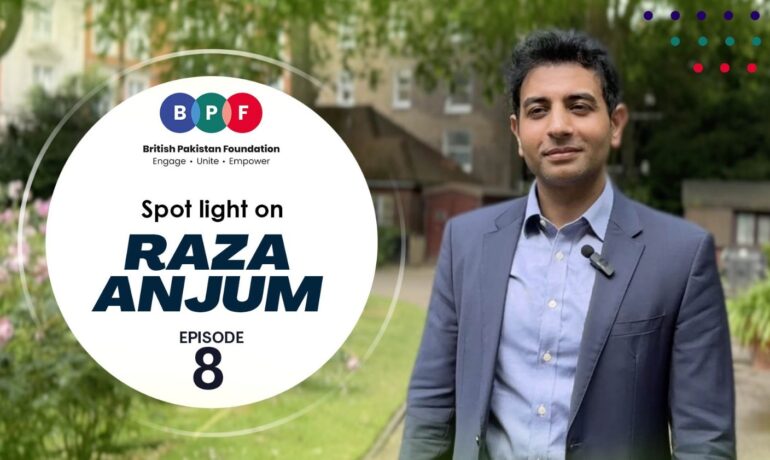Spotlight on Farmida Bi
Farmida Bi has more than 20 years of experience in capital markets and Islamic finance transactions, advising on English and New York law. She is the EMEA Chair & European Head of Islamic Finance at Norton Rose Fulbright and is based in London.
Farmida is named as a ‘leading individual’ for Islamic finance and for debt capital markets in Legal 500 UK, 2019. She is listed in The Lawyer‘s Hot 100 for 2019; has been awarded ‘Best in Banking and Finance’ twice at the European Women in Business Law Awards, and was nominated again in 2018; and was named one of the five most powerful Muslim women in the UK in The Times‘ inaugural Muslim Women Power List.
How did you get started in your career?
I followed the traditional route after having decided at the age of about 14 that I wanted to be a lawyer. I didn’t know any lawyers but used to enjoy watching Rumpole on TV and imagined that all lawyers were barristers doing criminal work. I had a real passion for ‘helping people’ and changing the world as a teenager and had a ‘eureka’ moment when I realised that being a lawyer could allow me to do that. I studied law and had a difficult choice to make when I had to work out whether I was going to be a solicitor or a barrister. There were very few funded pupillages in those days and City law firms offered a lot of security by paying for their trainees through law school as well as during articles. I had been on a summer scheme at a very large law firm and decided to accept their offer of a training contract. I had great fun, including six months in Singapore where I spent every weekend travelling to somewhere new in South East Asia. I qualified into the capital markets team which was very international, both in the work and the lawyers in the group.
What is a highlight of your career?
Being elected Chair of the firm by my fellow partners has been the biggest highlight of my career. It’s a great honour and privilege to represent such a fantastic firm made up of amazing women and men who are not only experts in their respective fields but decent people too. The firm has been in existence for 225 years and has had to adapt to life in all sorts of circumstances, whether it was the Napoleonic wars or the two IRA bombs that destroyed our offices or the current Covid-19 crisis.
From a practice perspective, at the start of my career, I acted for the Government of Pakistan on its debut eurobond which was incredibly exciting as it was a real bringing together of my various worlds. I have acted on all the GoP bond and sukuk deals since 2014 and each transaction is always much more than just another deal. More recently, I have been very proud of acting for the Red Cross on its humanitarian impact bond to raise results based private sector funding to build rehabilitation centres in Africa.
How would you describe the type of work that you do each day? Why is it important?
My work each day is partially firm based, either chairing one of the firm’s constitutional committees or representing the firm externally at a City or industry event. Right now, trying to decide how we are going to respond to the Coronavirus, both in terms of looking after our people in all the different offices across Europe, Middle East and Asia and ensuring that we are able to respond to our clients as efficiently as we could do from the office while remote working, has been intense. I also spend part of my day on transactional matters where I work with my team on advising our clients on their conventional capital markets or Islamic financing deals. The capital markets allow governments and corporations to raise large amounts of money to invest in their economies or businesses. I have also been active in helping to develop Islamic finance from 2003 onwards and some of my clients need their transactions to be Shariah compliant. It is a form of finance which complies with the principles of Shariah by, for example, avoiding the use of interest, but which has to comply with the tax and regulatory regimes in the jurisdiction in which the activity is taking place. Although Islamic finance is currently a small part of the global economy, it is growing very quickly and likely to be increasingly important, especially in Muslim majority countries like Pakistan. The UK is a global centre for Islamic finance and has received significant support from successive governments, including the issuance of a UK Government sukuk in 2014.
What does an average workday look like to you?
I don’t really have an average workday although most days involve some firm commitments (either a committee or attending a firm event organised by one of our practice or employee network groups ) and some transactional work. In normal times, I travel quite a bit to our international offices meeting the people in the office and our clients in that jurisdiction or travelling on my own transaction related work as many of my clients are not based in the UK. I also spend some time lecturing on Islamic finance at universities and attending conferences which can be either related to my practice or be linked to my role as Chair (for example focusing on diversity in the legal profession). My days are typically very long as I need to cover a broad range of time zones and have a practice which can have very aggressive timetables. It means there often isn’t enough time for family or friends or personal interests which I regret. The current lockdown certainly means that I’m spending more time with my teenage sons which is a mixed blessing!
What has been the greatest hurdle for you to overcome in your career?
I don’t think being an ethnic minority or a woman has been easy in the legal profession and while we are taking steps to address gender diversity I think there is an insufficient recognition of the barriers faced by ethnic minority lawyers in the UK. I certainly think we need to start being more vocal about it in the City.
What is the best thing about your job?
The people I work with and the variety of things that I do are the best things about my job. The people in the firm are caring, compassionate and dedicated and I am very proud of them. On any given day, I can be working on an innovative deal that is going to the market, considering how we are going to make our business more environmentally sustainable and hosting a client event.
What are your plans for the future?
My current plans are focused on making sure the firm gets past the current Coronavirus crisis in the best possible shape. I can’t imagine retiring so I hope I can do something useful once I leave the City. I am currently the Chair of Patchwork Foundation which is a fantastic charity that helps young people to become more engaged in politics and civil society.
How do you unwind
I love reading both novels and history. I highly recommend William Dalrymple’s book ‘Anarchy’ about the East India Company. I also love the theatre and cinema but in the current crisis I have become hooked on ‘Ertugrul’ on Netflix which is taking up any free time I might have!




